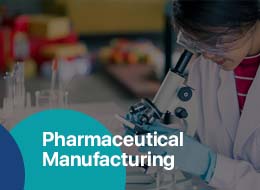Pharmaceutical Production & Manufacturing
What do you learn in the Pharmaceutical Production & Manufacturing Course? Pharmaceutical Manufacturing Processes Good Manufacturing Practices (GMP) Quality Control and Assurance Packaging and Labeling Regulatory Compliance Process Optimization Safety Protocols Emerging Technologies Industry-specific Software Environmental Sustainability Who Should Learn …
What do you learn in the Pharmaceutical Production & Manufacturing Course?
- Pharmaceutical Manufacturing Processes
- Good Manufacturing Practices (GMP)
- Quality Control and Assurance
- Packaging and Labeling
- Regulatory Compliance
- Process Optimization
- Safety Protocols
- Emerging Technologies
- Industry-specific Software
- Environmental Sustainability
Who Should Learn Pharmaceutical Production & Manufacturing Course?
- Pharmaceutical Professionals
- Aspiring Manufacturing Technicians
- Quality Control and Assurance Personnel
- Regulatory Affairs Specialists
- Pharmacy Graduates
- Chemical Engineers
About this Certificate Course
The Diploma in Pharmaceutical Production & Manufacturing is a comprehensive program aimed at providing in-depth knowledge and practical skills in pharmaceutical manufacturing. This course covers a wide range of topics, including pharmaceutical manufacturing processes, Good Manufacturing Practices (GMP), quality control, regulatory compliance, packaging, and labelling. Students gain hands-on experience in a simulated manufacturing environment, enabling them to apply their knowledge effectively. The curriculum also emphasizes emerging technologies and sustainability in pharmaceutical manufacturing. Graduates of this diploma program are well-prepared for roles in pharmaceutical production, quality assurance, and regulatory compliance, making them valuable assets in the pharmaceutical industry.
Certify Yourself & Stand Out!
- Showcase your skills
- Gain a competitive edge
- Stand out to recruiters
- Land your dream job
Why should you take the Pharmaceutical Production & Manufacturing Course?
Taking the Pharmaceutical Production & Manufacturing course is essential for those aiming to excel in the pharmaceutical industry. This program equips you with the expertise required for pharmaceutical manufacturing, ensuring you understand the intricacies of production processes, quality control, and regulatory compliance. With the pharmaceutical sector’s growing demand for skilled professionals, this course opens doors to rewarding career opportunities. Whether you’re an industry professional seeking advancement or a newcomer aspiring to enter pharmaceutical manufacturing, this course empowers you with the knowledge and skills to thrive in this vital field.

